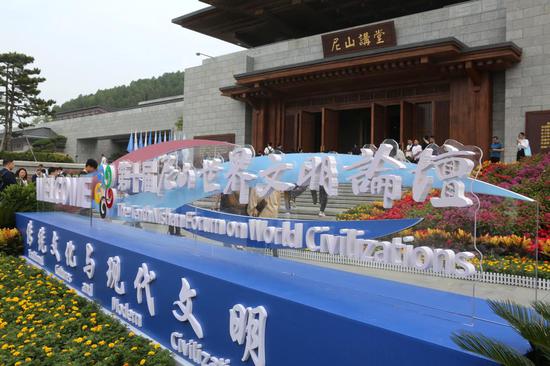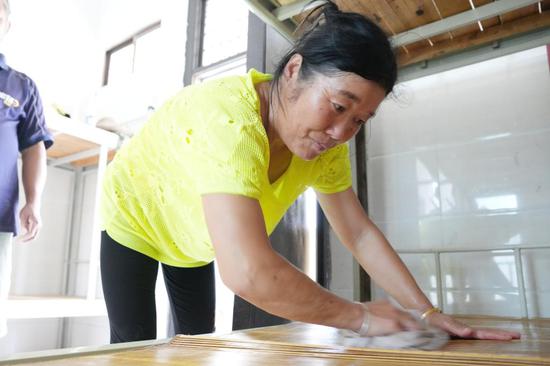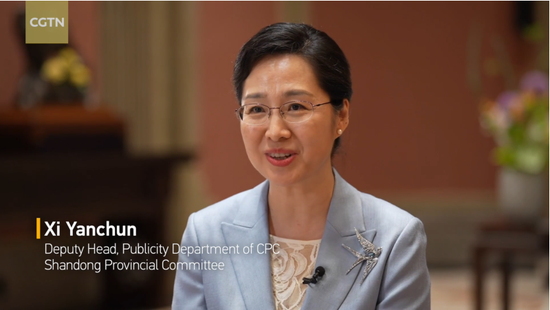Chinese researchers and biotechnology companies are accelerating research into chips that can replicate features of human lungs, livers and skin or simulate tumor metastasis in a bid to help discover and test new drugs and reduce dependence on animal studies.
The so-called organs-on-chips are transparent rubberlike rectangles ranging in size from as small as a fingernail to as large as a bank card. Three-dimensional models of organs made of cultured cells are encased in silicon and polymer material.
"A lung chip can mimic the expansion and contraction of air sacs called alveoli and a liver chip incorporates the organ's typical dual blood supply system," said Zhou Yu, general manager of Wuhan Luohua Biological Technology in Wuhan, Hubei province.
"We have also developed a skin chip that can be used to test cosmetics, skin care products and skin drugs."
By running cancerous cells through a red channel and nutrition or medication solution through tiny blue channels around it, the tumor chip can simulate the processes of tumor growth, Zhou said.
"Organs-on-chips that can mimic key function organs have provided an important platform to test novel drugs," he said. "Compared to drug trials using animals, these chips are expected to return more precise results, help cut down development costs and shorten time."
Wuhan Luohua Biological Technology, other companies and hospitals banded together to form an innovation alliance aimed at pushing research into organs-on-chips and organoids in Wuhan last month. Organoids are in vitro organ models grown in laboratories.
Zhou said the company is using the technology to build models of various diseases, such as fatty liver, kidney illnesses, cancer and systematic sclerosis.
"In the future … researchers can attempt to discover new biological patterns or drug targets by using artificial intelligence and big data tools to analyze data generated by experiments carried out on organson-chips," he added.
Liu Yun, president of Jiangsu Province Hospital in Nanjing, Jiangsu province, one of the first institutions in China to work with organson-chips, told Banyuetan magazine the technology allows researchers to collect a variety of information on human genetics, physiology and pathology.
But she said China is lagging behind developed countries in research on organs-on-chips, and more efforts are needed to boost related infrastructure to expedite industry development.


















































 京公網安備 11010202009201號
京公網安備 11010202009201號